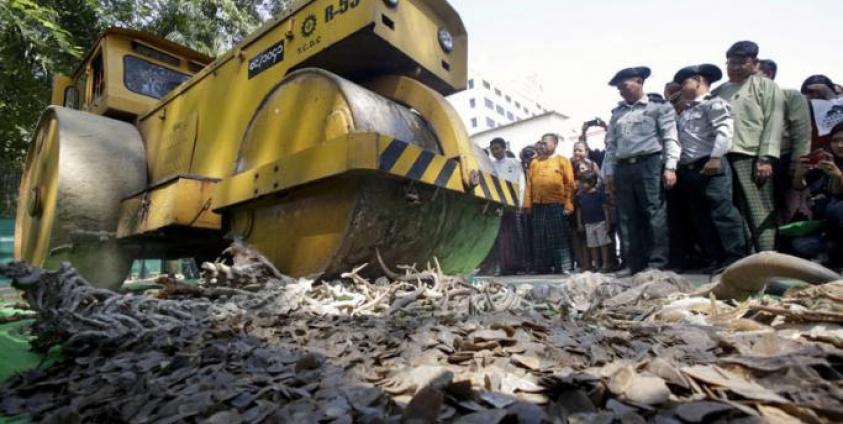Confiscated ivory and other animal parts are destroyed during a ceremony to mark World Wildlife Day at Yangon Zoological Gardens in Yangon, Myanmar, 03 March 2019. Photo: Lynn Bo Bo/EPA
Confiscated ivory and other animal parts are destroyed during a ceremony to mark World Wildlife Day at Yangon Zoological Gardens in Yangon, Myanmar, 03 March 2019. Photo: Lynn Bo Bo/EPA
In line with World Wildlife Day (3 March), the European Union is launching “Larger than Tigers”, a ground-breaking report that sets out a roadmap for an integrated environmental conservation approach in Asia.
Part of the report focuses on the Mekong Region, which features findings for Myanmar and the neighbouring countries.
The pressures on Myanmar’s biodiversity and ecosystems - from habitat loss to climate change and increasing wildlife crime - are intensifying. Myanmar’s natural ecosystems provide water and food, regulate climate, process waste products, pollinate crops, and support a growing tourism industry. These natural assets are irreplaceable.
The “Larger than Tigers” report contains valuable recommendations that are applicable to Myanmar, and the European Union in Myanmar wishes to support the country in maintaining its biodiversity and developing a green economy.
Preparation of the “Larger than Tigers” report took two years and involved 28 authors with input from 382 experts from over 150 organisations who participated in workshops or provided information and comments, across over 25 countries in Asia.








